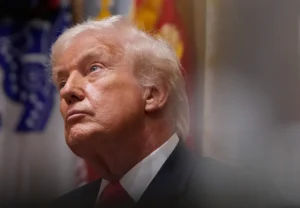While the European Union is increasing security protocols for staff traveling to the United States, Switzerland has chosen to stick with its existing approach. The EU is now advising diplomats to use burner phones when visiting the U.S. due to data protection fears. This puts the U.S. in the same security category as China and Iran. Meanwhile, Swiss officials say they have no plans to adopt the same level of caution.
EU Adopts Stricter Measures for US Visits
The European Commission is tightening internal rules for its employees when they travel to the United States, according to a report by Swiss public broadcaster SRF. The new guidance aims to reduce risks of surveillance and unauthorized access to sensitive information.
Although the Commission has not issued a formal directive, several EU diplomats confirmed to the Financial Times that burner phones are increasingly being used for U.S. trips. These phones are fresh devices that carry no sensitive data and are often discarded after use.
This change reflects deeper concerns about data safety in an era of increased political tension. A diplomat told FT, “It’s about protecting key information, especially in times when diplomacy is less about trust and more about strategy.”
US Now Viewed as High-Risk by EU
Placing the U.S. on par with nations like China and Iran signals a major shift in how the EU views its long-time ally. The move reveals growing mistrust between Washington and Brussels, especially with high-stakes negotiations and trade tensions at play.
Experts say that in today’s digital world, accessing a diplomat’s private messages could offer a serious strategic edge. During trade talks, for example, learning a party’s limits or final offer in advance could tip negotiations heavily in one side’s favor.
The concern grows stronger under leaders like President Donald Trump, who is known for his unpredictable policies. A return to a more transactional U.S. approach could push allies to safeguard information even more.
Switzerland Chooses Not to Follow EU’s Lead
In contrast, Switzerland is not making changes to its travel rules. Despite recent trade issues, including U.S. tariffs on Swiss goods, the Swiss government is taking a more neutral stance.
“There are no planned changes to travel protocols,” said a spokesperson from the Federal Chancellery to SRF. “Current security measures remain sufficient.”
Swiss officials are still required to use encrypted communications and delete sensitive data before travel. Devices must also be protected with PINs. But unlike the EU, there are no instructions to switch to burner phones or limit device use during U.S. visits.
This reflects Switzerland’s tradition of diplomatic neutrality. By avoiding measures that could offend Washington, the Swiss aim to keep political and economic ties calm and stable.
Strategic Silence or Smart Diplomacy?
While the EU appears to be preparing for the worst, Switzerland’s choice to stay the course may also be strategic. By not joining the list of cautious allies, Bern avoids sending a signal of distrust to the U.S.
“Switzerland has always preferred quiet diplomacy,” said a Zurich-based political analyst. “Adopting burner phones may not align with their approach, especially when no clear threat has been made.”
At the same time, some experts warn that Switzerland could be underestimating the risks. “Data theft isn’t always visible,” said a cybersecurity researcher at ETH Zurich. “Just because nothing has happened yet doesn’t mean it won’t.”
The Bigger Picture: Shifting Global Trust
This development is part of a larger trend where long-standing alliances are being tested by new realities. The EU’s move mirrors a global environment where digital threats and political rivalries blur the lines between friend and foe.
The U.S. has itself issued warnings about Chinese-made technology in government use, including phones, drones, and networking gear. Now, the EU is applying similar caution—not against rivals, but toward a traditional ally.
This doesn’t mean diplomacy is breaking down, but rather that governments are evolving to protect sensitive information more carefully than ever before.
As the EU takes stricter steps to protect its communications when dealing with the U.S., Switzerland is staying on a different path. It maintains trust in existing safeguards, choosing not to escalate diplomatic tension.
Whether this will change in the future remains to be seen. For now, the contrast in approach reflects two very different philosophies on international diplomacy and data security.







